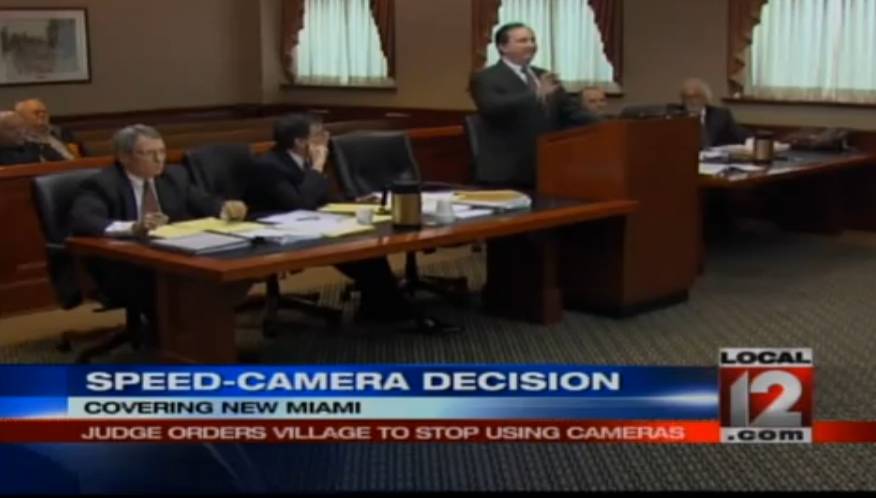
The Ohio Supreme Court is expected to rule soon in an important speed camera case. Joshua Adam Engel was counsel of record for an amicus curiae, or “friend of the Court” brief in the Ohio Supreme Court in the case.
In the case before the Ohio Supreme Court, a municipality is arguing that motorists who paid fines without requesting a hearing cannot seek refunds under unconstitutional automated traffic enforcement programs.
Read the brief here: Lycan-Amicus-Brief
Joshua Engel is one of the counsel for classes of plaintiffs in two cases challenging the use of speed cameras, Pruiett v. Village of Elmwood Place, Hamilton County Common Pleas No. A1209235;Barrow v. Village of New Miami, Butler Cty. C.P. Case No. CV 2013 07 2047.
The Common Pleas Court Judges in Pruiett and Barrow found that automated speed enforcement schemes violate the Ohio Constitution in two respects:
- the ordinances are unconstitutional because they violate the Ohio Constitution’s due course of law (due process) guarantees; and
- the ordinances are unconstitutional because they violate Article IV, Section 1, of the Ohio Constitution by usurping the authority of a municipal court.
In both cases, the Common Pleas Court judges issued permanent injunctions prohibiting the further operation of the that automated speed enforcement schemes.
The brief written by Engel argues:
The overwhelming majority of the members of the certified classes, like the Plaintiffs-Appellees in this case, did not bring a facial challenge to the constitutionality of the automated speed enforcement programs in the ersatz administrative hearings established by the villages. Instead, the members of the certified class paid civil fines assessed under the ordinances. . .
The members of the certified class would be significantly impacted because they would be found to have “waived” constitutional claims even though they were not provided a full and fair opportunity to litigate the issues at the administrative level.
The brief further suggests that if the city wins, then the villages of Elmwood Place and New Miami, along with their out of state corporate partners that operated the automated speed enforcement systems, would be unjustly enriched in the truest sense of the term; they would have received a significant benefit from enacting an unconstitutional scheme.
